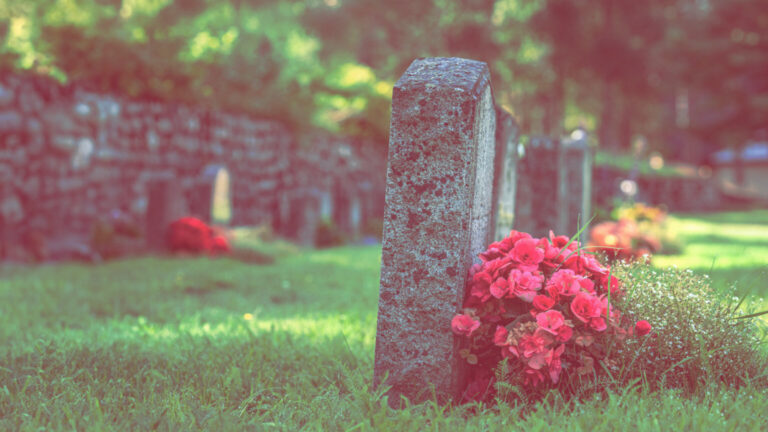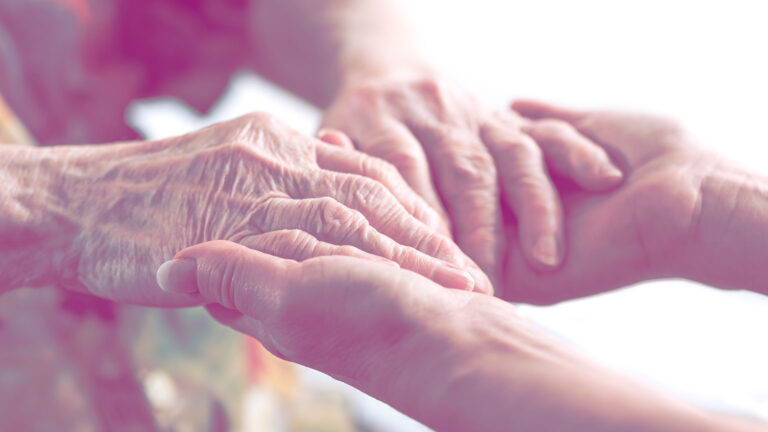There are certain signs when illness or old age has tipped into a preparation for death.

The dying may feel compelled to resolve unfinished business – End-of-life research studies show that the dying are often called by an almost organic process to confront and resolve unfinished issues from their past, particularly with estranged family members.
Special requests – Sometimes people may want to do something special such as visit a particular site, or be surrounded by their favourite flowers, or to hear certain music, or to have family photographs near, or to make contact again with someone who has been important in their lives.
Their external world begins to diminish – The draw of the world at large no longer appeals and even engaging with family matters no longer seems important. Rather the dying person prefers to remain in a safe, quiet place, often in bed.
Physical changes – These changes are part of the dying process. The skin can become paper-thin and pale, with dark liver spots appearing on hands, feet and face. Hair can also thin and the person may shrink in stature. Teeth can discolour or develop dark stains.
Increased sleep – The person begins to sleep for long periods. This can be distressing for relatives to witness, but it’s important to understand that physical exertion for someone approaching death is exhausting, and, for the moment, all their effort is being put into staying alive. Nearer the end, they may be incapable of remaining alert and increasingly drift in and out of consciousness.
Appetite reduces – the body knows it no longer needs fuel to keep it going, and those who are dying often lose their desire to eat or drink. They can begin to lose weight, sometimes quite rapidly. It’s important not to force food or drink onto someone who no longer wants it. But do take guidance from medical staff and end of life carers.
Change of language – The person may start to talk about ‘leaving’, ‘flying’, ‘going home’, ‘being taken home’, ‘being collected’, ‘going on holiday’ or using other journeying language. They may also begin to express heart-felt gratitude to their carers and to their family as a preparation of farewell.
Deathbed visions – it is not uncommon in the weeks, days or even hours and moments before death for a dying person to speak of being ‘visited’ by dead relatives, friends, groups of children, religious figures or even favourite pets.
A little more about deathbed visions
The dying will say these ‘apparitions’ have come to ‘collect’ them or help them let go. Even when semi-conscious, it may appear that they are reaching out to take hold of something, and then feeling it between their fingers as if puzzled. They may also appear to be thinking deeply, as if they are being ‘shown’ information that they may not have considered before.
The dying, and those who witness these end-of-life experiences, usually describe them with loving reassuring words such as ‘calming,’ ‘soothing,’ ‘greeting,’ ‘comforting,’ ‘beautiful,’ ‘readying.’ It is not known how many dying people have such visions and experiences. But end-of-life experience research does suggest that they happen in all cultures and religions, occurring generally within the final weeks, days or hours of death. However, it is probable that many end-of-life experiences are not reported, because the dying person is afraid of appearing confused or distressed and believes they will be given medication to stop them happening.
Carers may keep quiet about these end-of-life experiences because they believe it is not professional to talk about such things. Or they simply do not have the time to sit with the dying and therefore miss them. Relatives may not speak about such experiences to staff or to other family members and friends for fear of ridicule or disbelief. Nevertheless, research suggests that end-of-life visions and dreams hold profound meaning for the dying and help them to accept their dying process.
Thank you for visiting this page. You may be interested in my books on death and dying. You can also listen to a host of fascinating guests on my Embracing Your Mortality podcast.

















2 comments
Sandra Marshall
Hello Sue,
A series of events has brought me to this contact…
After attending a Steve Judd event in 2019, I spent the following years learning astrology with him and Rick Levine mostly, and through The Astrology Hub, was introduced to several other astrologers: Judith Hill was my first deep dive into the lunar nodes and medical astrology who has influenced my journey ever since. I’m now hooked in to Steven Forrester’s approach to evolutionary thinking which is where I found your interview with him from about a year ago which prompted this contact. I felt you and I have a similarity in thoughts and I chuckled a couple of times during the interview. I was born in Jan 1953 and see you are a Feb 1953 so we do share some important influences.
I was diagnosed with CLL (Chronic Lymphacytic Leukaemia) in ’23 which, according to my blood tests, probably raised it’s ugly head in 2000 so I also am interested in the death process. It is also synchronistic (I think), that at that time I was working with The Healing Trust toward a qualification I thought would be helpful after the Covid take-over. I come from a healing family line and so thought I could be of some use, especially under the banner of THT. It was there that I was introduced to William Bloom PHD, who, like you, has a profound interest in death and dying, having passed over several times himself.
Anyway, back to the contact: Because of your interest in the soul’s journey and nodal axis importance discussed with Steven… I have an interesting situation with two chart’s…one 1981, the other 1996. The younger is an extremely gifted psychic medium male who I approached for help with a possible timeline for my departure. The elder is a gifted lady tarot reader (now his business partner). They have shared chart influences which I find fascinating: Cancer MC with nodes exactly opposite each other, his SN conjunct Chiron at 22° Cancer 10H with Sun in Taurus 8H (abused by Dad), her NN at 22° Cancer 10H with Chiron in Taurus 8H…In your practice, have you ever seen this before? I’d love to hear your thoughts if you have the time.
And oh, thank you for your information on death and dying… FYI, I have an isolated NN in Aquarius 12H…SN conjunct Pluto : )
Regards, Sandra x
Mary Zeiser
I am intrigued by your work. I have survived two comas and a traumatic brain injury and slipped through death’s hands several times. I can relate to much of what you speak about and would love to talk to you in person.